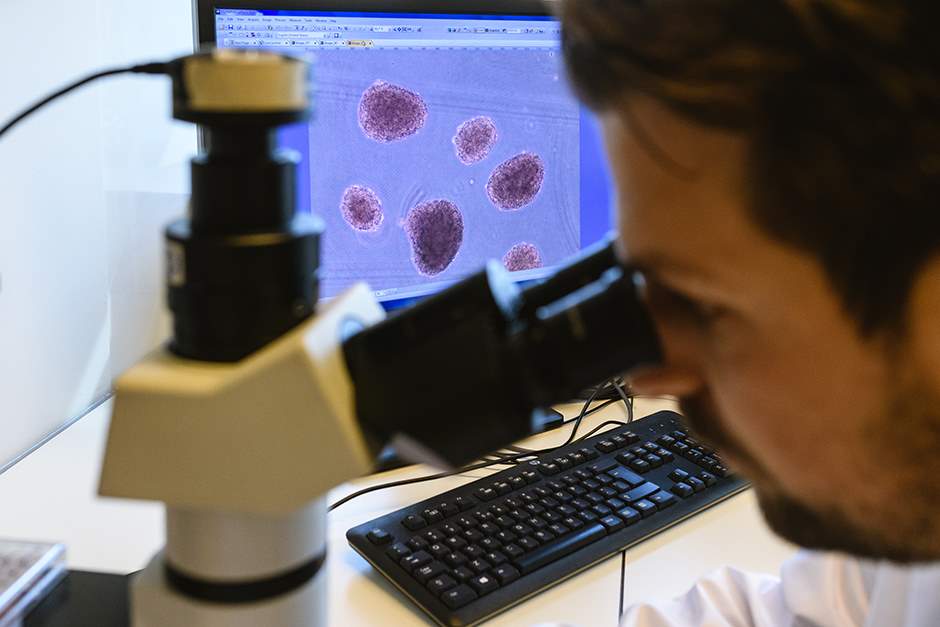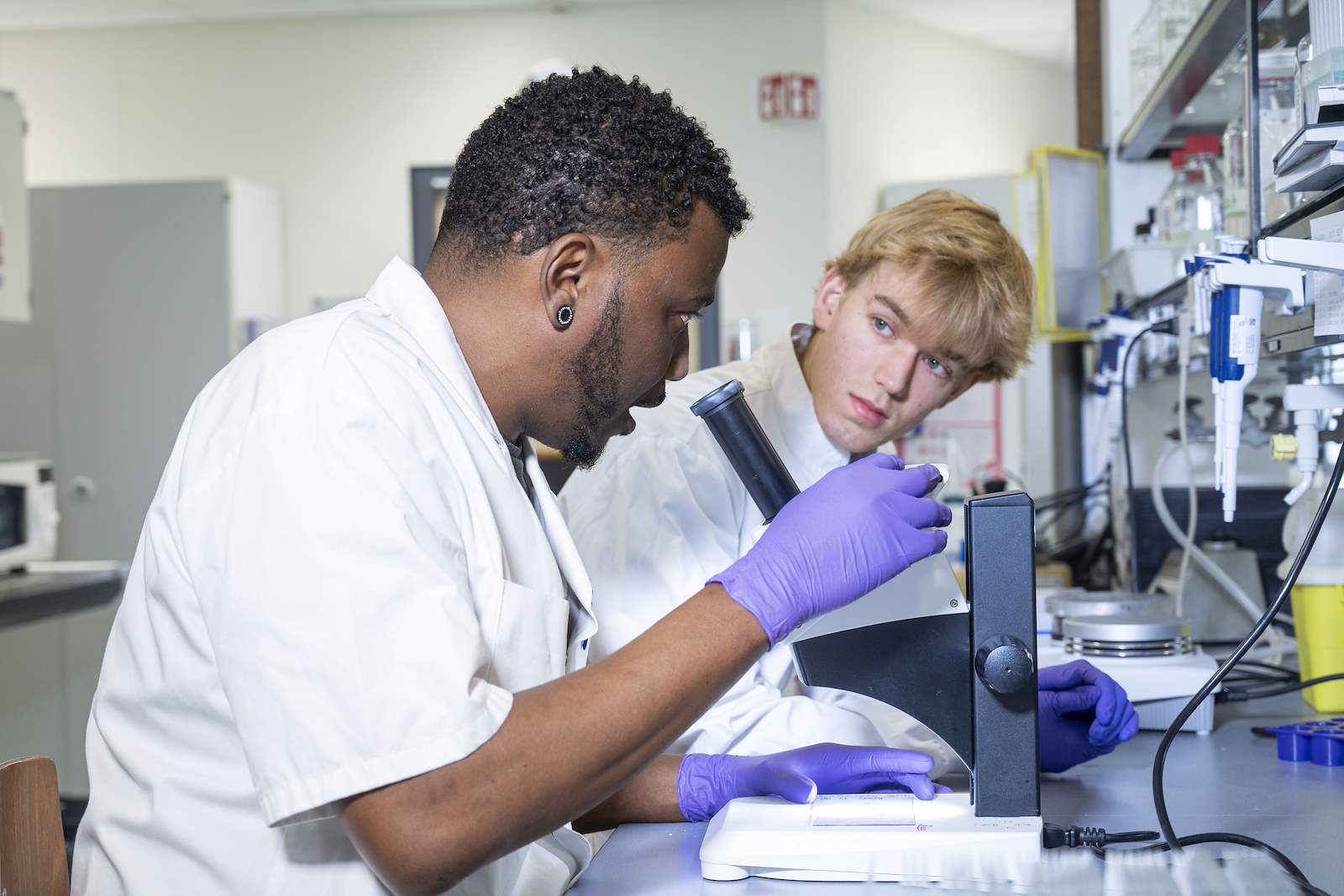Environment: the impact of our research on a healthier world
Our researchers do more than help people get better. We also want to keep them healthy and prevent them from getting sick. We therefore do research in this regard as well. But our work also has a negative impact on the environment, since our laboratories use a lot of energy, for example. What role does sustainability play in our scientific research? People are curious about this.

The health of our planet is under pressure. This also has an impact on people’s health. Many people nowadays are using a considerable amount of products and commodities, and for instance travel regularly by car and/or plane. Due to this, we are contributing to global warming, environmental pollution, and the loss of biodiversity. UMC Utrecht is studying the consequences that this has for people’s health. And what we can do differently in order to improve their health.
Reduce the negative effects of chemical substances on health
What effects do certain substances have on our health? For example softeners and PFAS, substances that are found in things like plastic packaging and storage boxes. Or pesticides used on vegetables. To answer these questions, we developed a unique research center called the Exposome Scan , The center forms part of the Exposome-NL research program. In this research program, we look at how people’s habitat influences their health. In 2024, we also started looking at how people’s habitat influences how well they react to medical treatment. We first of all studied how chemical substances affect the effectiveness of medication for high blood pressure. With this information, we will ensure that the government can adjust laws and regulations. For instance so that certain substances may be used less. Or that certain substances will be prohibited. Organizations that produce these kinds of drugs can also use the information. They can then adapt the drugs so that they can also be effective if certain chemical substances are present in the body.
Impact of small plastic particles on children’s health
A lot of the products we use, contain tiny bits of plastic (micro- and nanoplastics). Many people are highly concerned about the consequences of these for our health. What is for example the effect of these tiny bits of plastic on pregnant women, or on the health of a child? We are studying this in the international AURORA project . In 2024, we measured the amount of tiny bits of plastic in approximately 800 pieces of placenta. In 2025, we are finalizing this part of the research. We shall then look at the consequences it has for babies and children. With this information, the government could for example take measures if needed. For instance to reduce the use of tiny bits of plastic in products. UMC Utrecht is coordinating this international study.
European cooperation on the impact of climate change on health
In our international EXPANSE research we are cooperating with other countries in Europe and sharing knowledge on the impact of climate change and chemical substances on people’s health. For example the consequences of heat for older adults or people who are ill. Some of these health risks for the time being seem less important for the Netherlands. But in the future, this may well have significant consequences for Dutch people. In 2024 we gathered a lot of information together with research institutes for example in Spain, Greece, and Czech Republic. In 2025 we are studying how different matters influence each other. For example air quality and (higher) temperature. This will give us information on health risks and how people, organizations, and the government can prepare for it in order to prevent or limit the damage to people’s health as much as possible.

How does UMC Utrecht make research more sustainable?
In our laboratories, several Green Teams are working actively on more sustainable ways to do our research. In 2024 for example, in two departments, some 40 freezers in total were installed with a very low temperature of -80 to -70 degrees. This enabled us to save on energy costs. We also reduced the amount of CO2 released into the atmosphere by more than 15 tonnes of CO2 per year. This is the equivalent of 75,000 kilometers driven with a petrol vehicle, or 39 flights (one-way journey in economy class) from Amsterdam to Rome (source ).
Joep Sprangers, Laboratory Sustainability Manager: “What makes me the proudest is the fact that we managed in two departments to install a total of some 40 freezers with a very low temperature of -80 to -70 degrees. With this ‘cost-free’ action, we are saving on energy costs and reducing the amount of CO2 that is released into the atmosphere.”
Since November 2024, our healthcare professionals have also been using fewer disposable gloves in laboratories. To do so, a number of colleagues developed ‘The Naked Hand Revolution’ in 2024. In it, indications are given of when someone may or may not use gloves. This not only helps us to use fewer gloves, but also to avoid contamination. Another colleague designed stickers to help remind colleagues which equipment can be switched off, and when. This enables us to save energy and reduce CO2 emissions. We are also participating in the LABEXUS platform. Via this platform, institutes can exchange laboratory items at Utrecht Science Park. This allows us to reuse as many items as possible (circular use). And as a result, avoid wastage.
In a short film posted on LinkedIn , colleagues from the labs explain what else they have done to work in a more sustainable way.
